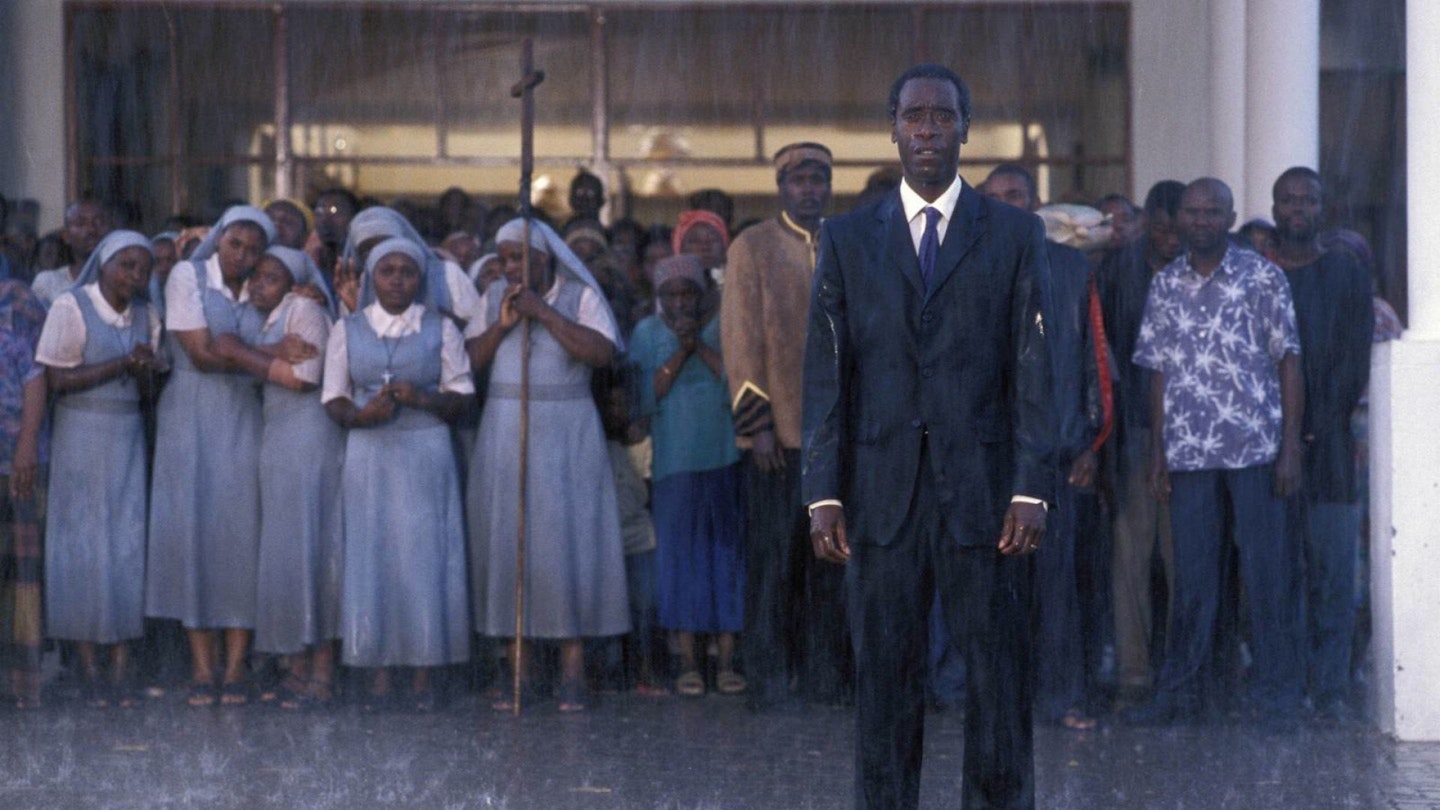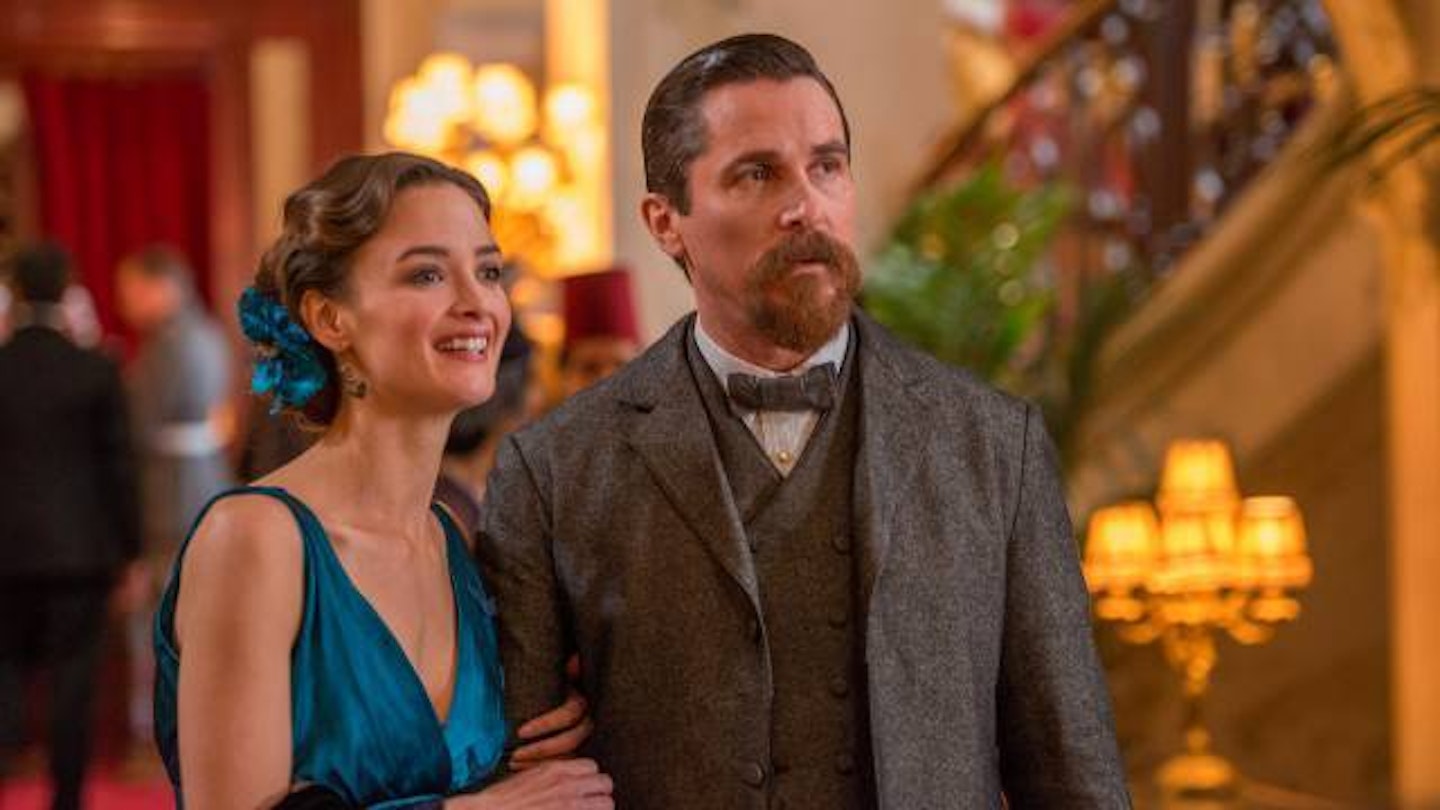Sometimes it's a line of dialogue that stays with you. Others, it's a kick-ass set-piece. With Terry George's Hotel Rwanda, it's a single, heart-crushing image: that of prim hotel manager Paul Rusesabagina (Don Cheadle), wearing a spotless suit, his tie perfectly knotted, straight-backed and clutching an umbrella for his leaving guests as the rain pelts down around them. But these guests aren't merely checking out after a relaxing few weeks in Kigali.
They're non-nationals fleeing Paul's country, part of a total foreign withdrawal as Rwanda insanely tears itself apart, leaving Paul, his family and his employees virtually defenceless at the hands of the genocidal, machete-wielding Hutu militia. These people represent Paul's doom. Yet he still shelters them from the rain. Okay, so the symbolism's rather obvious, and it does imply a heavy-handedness on George's part, to which he resorts more overtly elsewhere in the film. But heavy-handedness is frankly forgiveable with this subject matter: in a few months, almost a million people were slaughtered in Rwanda.
This is one of the most intense acts of genocide in human history - and it happened only a decade ago, while most of us in the West, catching the odd news report, dismissed it as 'just a bunch of Africans killing each other again' before flipping channels.
Besides, who cares about overdone orchestral blasts or signpost-waving lines of dialogue when such raw, naked, painful humanity is displayed by Don Cheadle in the central role? The actor transforms from suave schmoozer of generals and militia leaders, to protective family man, to a reluctant saviour who's forever struggling to maintain his fragile composure, all the while sidestepping every histrionic outburst you'd expect.
At his side is fellow Oscar nominee Sophie Okonedo, similarly impressive as his distraught wife Tatiana, while bigger names - Joaquin Phoenix, Nick Nolte - effortlessly energise the smaller roles.
Watching Hotel Rwanda is a deeply humbling experience, and for all the uplift of Paul's Schindler-like achievement, you still feel acute guilt and rage at the fact that the West barely lifted a finger to help the people of a nation that, economically at least, had little to offer us in return. As Nolte's deflated U.N. colonel tells Paul in one scene, "You're not even niggers. You're Africans."


